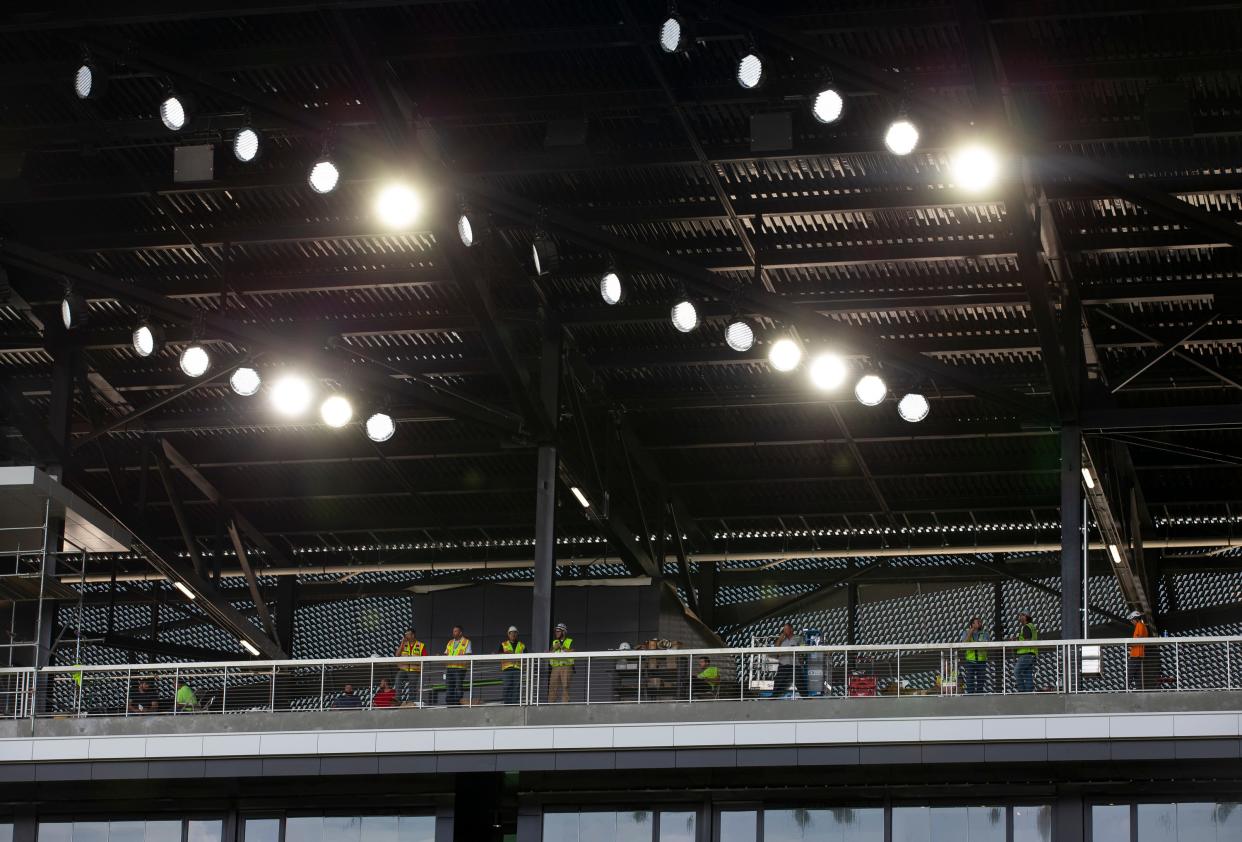NAACP opposes letting non-citizens qualify as minorities in Columbus contractor program

The Columbus NAACP and the local branch of the National Association of Minority Contractors will oppose a city of Columbus policy change that would allow non-citizens to become "certified" for diversity and inclusion programs meant to help them land city construction, supply and service contracts.
According to Columbus city code, becoming certified as a "Minority Business Enterprise" or "Woman Business Enterprise" could qualify a business for financial assistance, bonding, prompt payment and contract-dispute resolution services, mentoring programs, and the elimination of restrictive bid specifications that might adversely affect their participation in gaining work, among other benefits.
Becoming a certified city MBE or WBE "makes it easier to identify those ready, willing, and able to perform on city contracts," said Melanie Crabill, a spokesperson for Columbus Mayor Andrew J. Ginther
Removing citizenship requirements is a common practice in other cities "because you do not need to be a U.S. citizen to own a business in the United States," which would make the program more equitable by expanding it to include all businesses eligible to perform work in the state of Ohio, Crabill said in an email.
But the city also sets goals for contractors bidding on major construction work for making efforts to subcontract with certified minority and women businesses. Those goals are tracked by prime contractors hiring certified subs in deals potentially worth millions of dollars. Just for the Lower.com Field stadium construction, 117 contracts were awarded to minority- and women-owned contractors worth over $74 million, according to one compliance report.
"This revision, if implemented, would be perceived as an affront to the Black businesses historically affected by discriminatory practices within the city of Columbus," Nana Watson, President of the Columbus Branch of the NAACP, said in a written statement released Thursday afternoon.
Watson's comments followed a meeting with city officials on Thursday in which the group was ultimately informed that City Council would push forward with eliminating the citizenship requirement. The NAACP is "gravely concerned" that the change is being made without its members' approval, Watson said.
In short, the change "would define legal non-citizens of the United States as protected minority businesses for the purpose of awarding contracts to companies owned by non-citizens," the Minority Contractors said in a statement.
That group added that "non-citizens are not necessarily minority, as defined by code, and do not have the historical experiences that would allow such a broad use of a protective class to survive a judicial challenge."
City Council spokesperson Jose Rodriquez said that council staff met with representatives of the two groups Thursday afternoon, and Council also held a ,public hearing in September designed to get feedback. The policy changes, which include amendments to six ordinances that also deal with other contracting issues besides citizenship, were the subject of a Council hearing in September.
"By no means does this legislation dilute the opportunities for Black/African-American or other minority businesses, but ensures that all residents have access to city resources that they are entitled to," said a statement issued Thursday evening by Council members Lourdes Barroso de Padilla and Nick Bankston. "We remain committed to removing all barriers that racism and inequity put in the way of residents.”
Barroso de Padilla told WOSU in September that the changes open up contracting access to the booming population of immigrants and refugees: "Of the two to three million folks that we think will come into the region, about a million of those will be immigrants, migrants and refugees. And so that changes the city, and it changes how we do business."
The ordinances are expected to be voted on in the coming weeks.
wbush@gannett.com
@ReportBush
This article originally appeared on The Columbus Dispatch: Non-citizens could become protected classes of Columbus contractors

